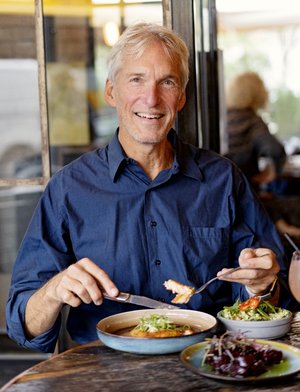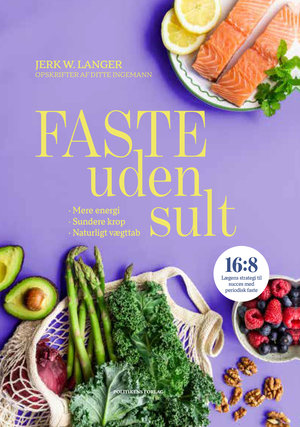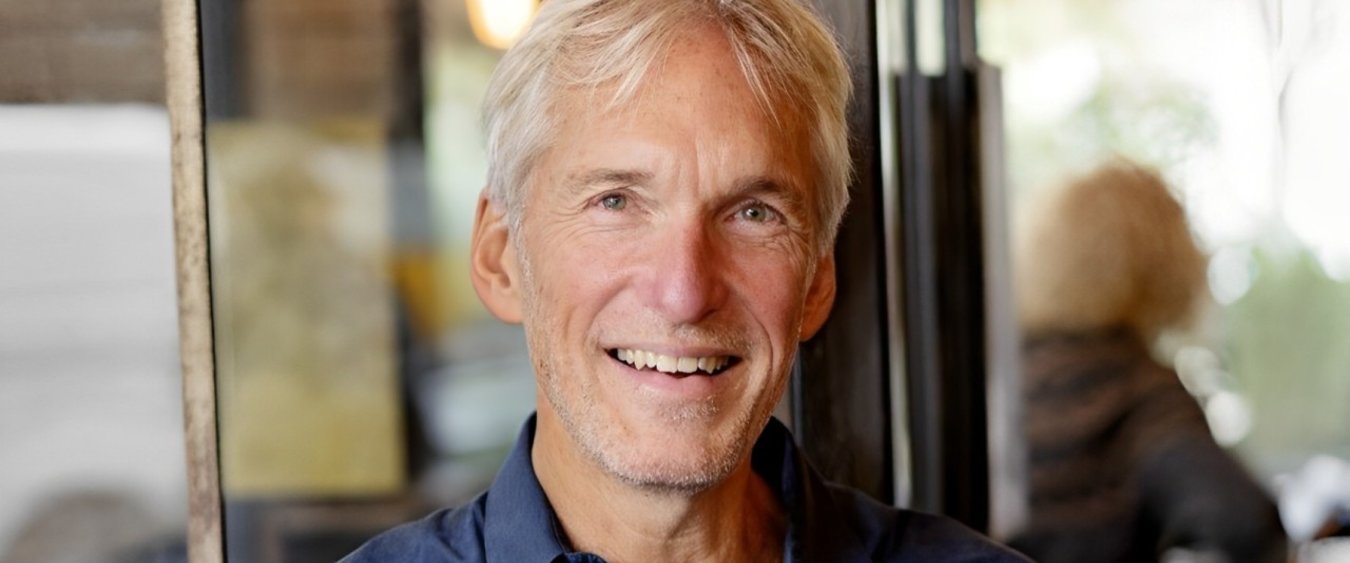Why did you decide to write a book on intermittent fasting?

‘Way back, when I was a schoolboy, I never really ate breakfast. It wasn’t for health reasons, I just felt better when I didn’t eat all the time. As I studied more and became a lifestyle-focused physician, I followed the research around intermittent fasting and observed other people’s experiences. Eventually, I decided to uncover the science behind it myself. I had already explored the benefits of collagen in my previous book, ‘Collagen’ (‘Collagen: Stærk, sund og smertefri’). Even at that time, I was already thinking about how collagen and intermittent fasting could be combined, so it seemed natural to dive more into this topic too.
‘I started talking to the top experts and looking into the science, before writing my book. It’s about how people can get started with intermittent fasting, what benefits it can offer, and the role of intermittent fasting for the many people who want to improve their mobility and fitness - a group that overlaps with collagen supplement users.
What does the research say about intermittent fasting?

‘Across their research, scientists have shown that eating less than we usually do in most Western cultures can be beneficial. For example, research on animals has demonstrated that eating less can prolong life. Of course, this research can’t be done on humans, but recent research with surrogate markers such as blood pressure and insulin sensitivity shows promising results from caloric restriction, like in fasting. It’s clear eating as much as many people nowadays do isn’t healthy. This is especially apparent in the Western world, where food is everywhere: you’re always being sold something, so we’ve come to consider it normal to eat even when we’re not hungry.
‘Evolution plays a part in this. Our ancestors never knew where their next meal was coming from, so as humans, we developed a reptile brain that craves energy, calories, sugar, and salt all the time. However, nowadays, most of us always have food available – scarcity is not a problem the way it was for those early ancestors. Today, consumers are faced with constant choices: there’s always candy, biscuits, or crisps in the house. For me, this highlights a real benefit of intermittent fasting: you take away these decisions. If you are fasting and your eating window is between 11:00 am and 19:00 pm, you can eat. Outside the window, you don’t. You just need to look at your watch.’
How can collagen peptides help with intermittent fasting?
‘One thing that people find tricky with intermittent fasting is how it relates to their workout and exercise routine. They worry about muscle degradation or a lack of energy, especially near the end of the fasting period. In reality, though, it’s the opposite: to get the best results from fasting, you should consider exercising in the last part of your fasting window. This is because fasting and physical activity can work in the same way.

‘When combining intermittent fasting with exercise and a healthy diet, which I often suggest, it’s important that the body gets the nutrients it needs to stay fit and prevent injuries. However, here, what I call the “collagen paradox” comes in: the healthier the diet, the less collagen you get from your food, meaning the body might not be getting the collagen it needs. This is why I often suggest supplementing with collagen peptides, which help to support the key structures in our body like connective tissues, bones, joints, cartilage, muscles, and ligaments – letting us stay physically fit, improve recovery, prevent injuries, get the full gain from fasting, and live a healthy lifestyle.
About Jerk W. Langer
Jerk W. Langer is a lifestyle-focused physician, public speaker, and science communicator, based in Copenhagen, Denmark. He is the author of several bestselling books, including one on collagen, with his most recent on intermittent fasting. He frequently appears as an expert on Danish national television, radio shows, podcasts, and news media. Jerk is a lecturer at the University of Copenhagen, Faculty of Health and Medical Sciences, as well as in postgraduate education for general practitioners. In his free time, Jerk is an avid marathon and ultramarathon runner, having completed over 400 races.
Hear more from Jerk in his other blogs with us:
